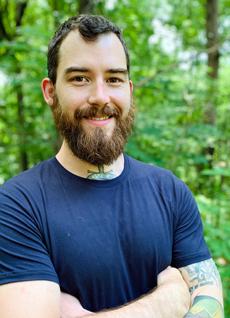
Credit: Phot by Emily Glantz
Operators beyond the confines of conventional emergency healthcare are willing and able to assist in a crisis, a University of Gothenburg study shows. Hotels, schools, and veterinary clinics are among those ready for inclusion in a crisis preparedness system, to enable emergency healthcare to be scaled up with the utmost speed.
The purpose of the study was to investigate the prospects of creating a system in which units outside emergency healthcare serve as alternative care facilities when patient numbers surge. This may happen, for example, owing to terrorist acts, major accidents, or large-scale disease outbreaks.
The fact that the study was partially conducted while the current pandemic was under way is due to chance. Nevertheless, interest in the results — now published in Sustainability, the scientific journal — is naturally increasing.
The lead author is Viktor Glantz, whose research has been within the framework of a master’s degree program at Sahlgrenska Academy, University of Gothenburg. His clinical work is as a nurse in surgical emergency and trauma care at Sahlgrenska University Hospital, and in coordinating emergency preparedness throughout the Hospital.
In the study, 100 actors within the civil society in Sweden — hotels, sports facilities, schools, dental clinics, veterinary clinics, and healthcare centers — were questioned about their capacity and willingness to join a regional preparedness system for upscaling emergency care: what is known as the community’s ‘flexible surge capacity’ (FSC).
At just over 40 percent, the rate of response to this questionnaire survey roughly corresponded to expectations. Almost all the respondents wanted to be involved, including in the preparatory work, jointly with the healthcare services.
“There are huge numbers of people in civil society who feel they’re unnecessarily helpless in an emergency situation. Everyone can see that there ought to be preparedness, but no one’s taken on the task of actually developing it,” Glantz says.
“In the spring, for example, a great number of veterinarians have been there in empty clinics because of reduced demand due to the corona pandemic. They could absolutely have received uncomplicated somatic patients if there’d been preparedness, contracts, and support from the healthcare sector. But you can’t shoot from the hip: there has to be a plan for training and practice sessions — who does what, which patients go where, and who pays.”
Besides the questionnaires, 12 qualitative interviews were conducted with representatives of various units that were not designated emergency care facilities. The questions related to existing capacity and skills, access to premises and materials, the categories of patients they could receive, and shortcomings in terms of further preparedness and more advanced care, such as small-scale surgical operations.
The interviewees were open to receiving patients with minor injuries from, for example, accident sites. Some units could conceive of providing care for people with somewhat more severe injuries as well. In general, Glantz sensed in the operators a strong drive to cooperate in the preparedness system, and even to participate in its actual development.
“The will to help the emergency care services at times of crisis and disaster definitely exists in civil society. Now it’s our turn to capture, respond to and channel that willingness to help out in the best possible way,” Glantz says.
“We’ve got to start using all available resources, regardless of whether they belong to the military, ambulance and paramedical services, or primary care. Everything has to be available when we need it, at once — but for that we have to be prepared for crises and disasters before they happen,” Glantz concludes.
###
Title: Regional Flexible Surge Capacity–A Flexible Response System, https:/
Media Contact
Viktor Glantz
[email protected]
Related Journal Article
http://dx.




